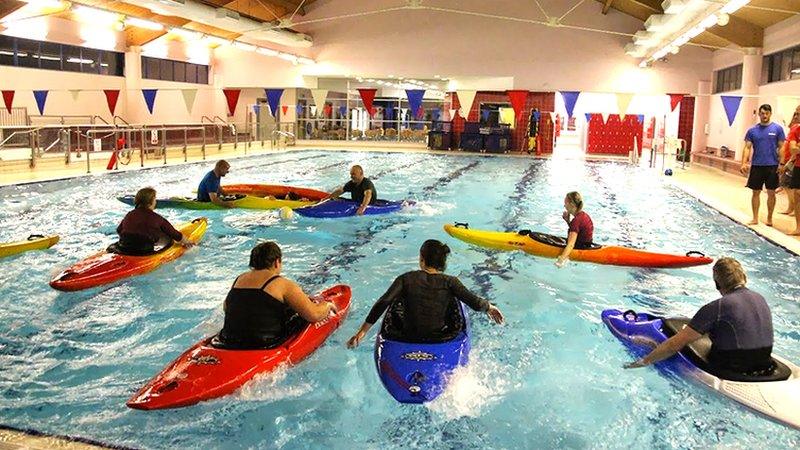In at the deep end: who should run our pools and leisure centres?
- Published
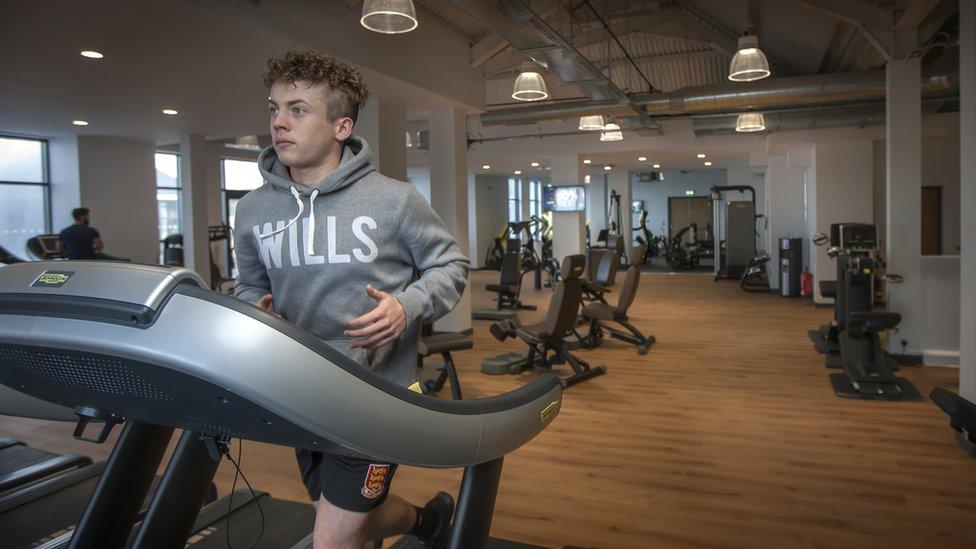
Half of local authorities in Wales have handed over the running of their leisure services to outside organisations, with four more councils considering similar moves. Outsourcing is seen as a way to save money without losing leisure centres and swimming pools. But opponents say it is simply passing the buck.
"It's been tough, very tough," said Heidi Williams. "We were given a sinking ship and expected to make it float."
Ms Williams chairs Harlech and Ardudwy Leisure (HAL), a community company which took over the running of Harlech swimming pool in 2010, after Gwynedd council said it could no longer afford to run it.
"It's a massive thing to take on," she added. "At the end of the day, if it was making money, the local authority would have kept it open and not handed it over to us."
Half of Welsh councils outsource swimming pools and gyms, BBC research shows.
Her view is shared by Darrell Wright, former chairman of Splash Community Trust, which took over Wrexham's Plas Madoc leisure centre in 2014.
"You have to realise you will never, ever keep the place going from the people coming through the door," he said.
"The overheads are frightening - it costs about £75,000 to £80,000 a month just to pay the bills. We didn't realise that when we took it on. When we finally opened, we sat down and thought, 'dear me, what have we done here?'"
Both groups have had to go cap in hand to their councils, just to keep the doors open, and their money worries are far from over.
But despite the difficulties, these volunteers have managed to save - for now, at least - community facilities which would otherwise have shut.
As they look to cut costs, many Welsh councils see outsourcing as their best - or only - option to keep pools and leisure centres open.
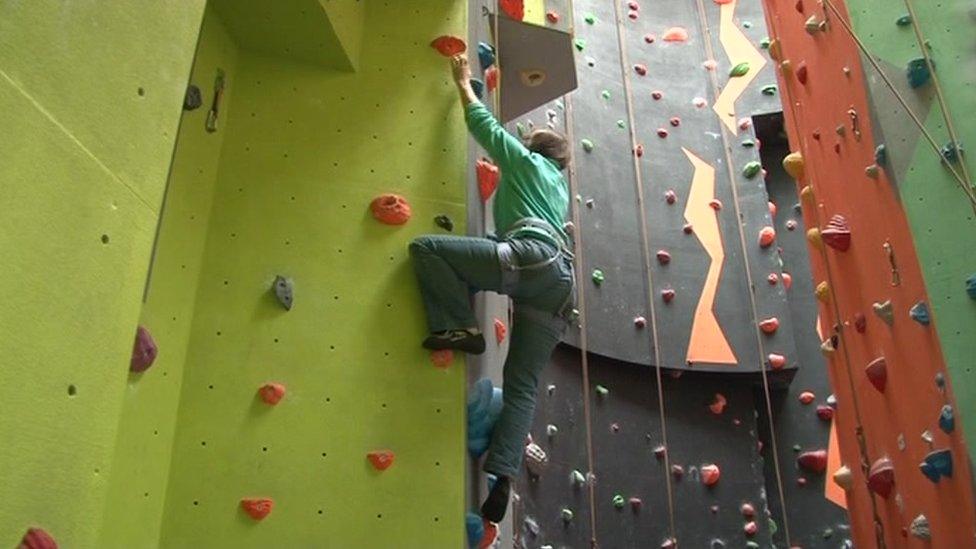
A new climbing wall and cafe at Harlech pool still did not help it break even, said Heidi Williams
In December, Cardiff council handed over eight leisure centres to GLL, a not-for-profit company which runs 300 such facilities across the UK.
It said the new arrangement would save £31.9m over 15 years, while providing "greater future certainty over the future of leisure provision in Cardiff".
At the other end of the country, in Denbighshire, the council has a different stance.
The authority's head of leisure, Jamie Groves, said there is no "clear rationale" for outsourcing.
"I think councils across Wales have been too ready to consider alternative models because they think the grass is greener.
"If you ask someone else to provide a service for you, it's got to be for betterment, it can't just be for quick-win savings.
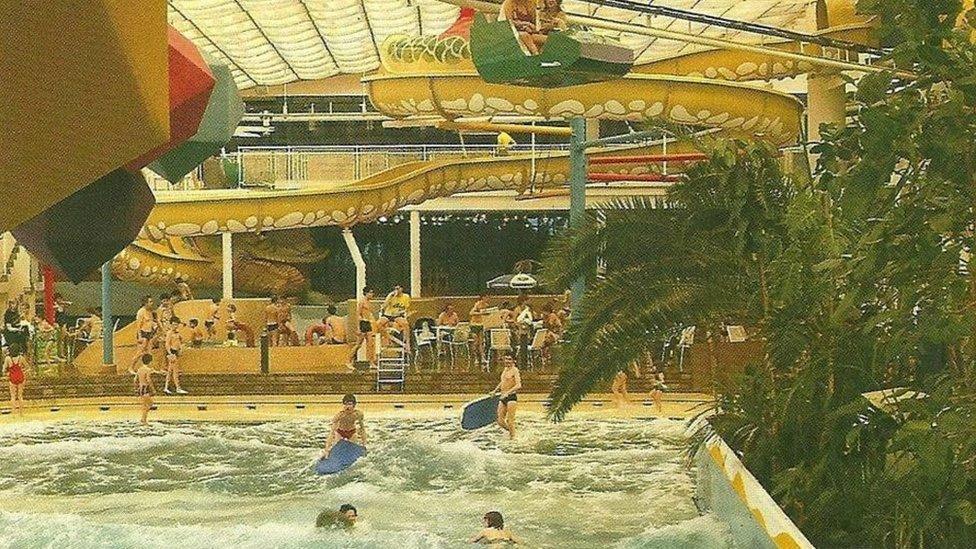
The now-demolished Rhyl Sun Centre was run by a trust for 13 years
Denbighshire was one of the first councils to outsource leisure services - in 2001 it set up Clwyd Leisure - an arms-length trust - to run Rhyl Sun Centre, Prestatyn Nova and the North Wales Indoor Bowls Centre.
It did not end well - the trust went into liquidation in 2014 and all three facilities were shut down.
While the Sun Centre was demolished in 2016, the Nova and Bowls Centre have been refurbished and reopened, this time under council control.
One year in, said Mr Groves, the Nova is already "overachieving".
"The council has invested just under £4m in this place and at the moment, it's on course to pay all that back and more.
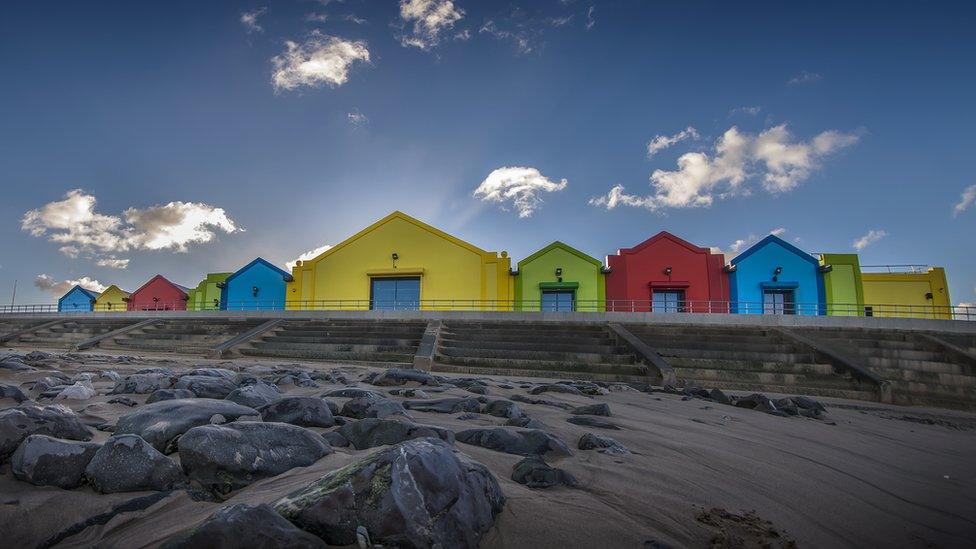
The town's new leisure centre has "enhanced" Prestatyn as a tourist destination, said Jamie Groves

The Nova's soft play area is a hit with locals and visitors
Mr Groves is not alone in his doubts about outsourcing - public services union Unison warned it "spells disaster" for local communities and leisure centre staff.
Dominic MacAskill, Unison Cymru's head of local government said outsourced companies would "inevitably... look to make savings by sacking workers or not replacing staff who leave and squeeze wages and employment conditions.
"It is a short-term economic fix and cannot benefit people in the long term."
Flintshire council, which is currently handing over its leisure centres to outside organisations, insists its outsourcing plans are future proof.
Chief executive officer Ian Bancroft vows the authority "will not walk away" from two social enterprises which are taking on facilities at Connah's Quay and Holywell.
"They are cooperative relationships and we will continue to put in 20% of the cost of those centres, so those organisations will get a grant", he said.
"We've also set aside capital funding that they can draw down over a long period of time to deal with building issues.
"If you plan and you do it cooperatively... then I think it can be a success."
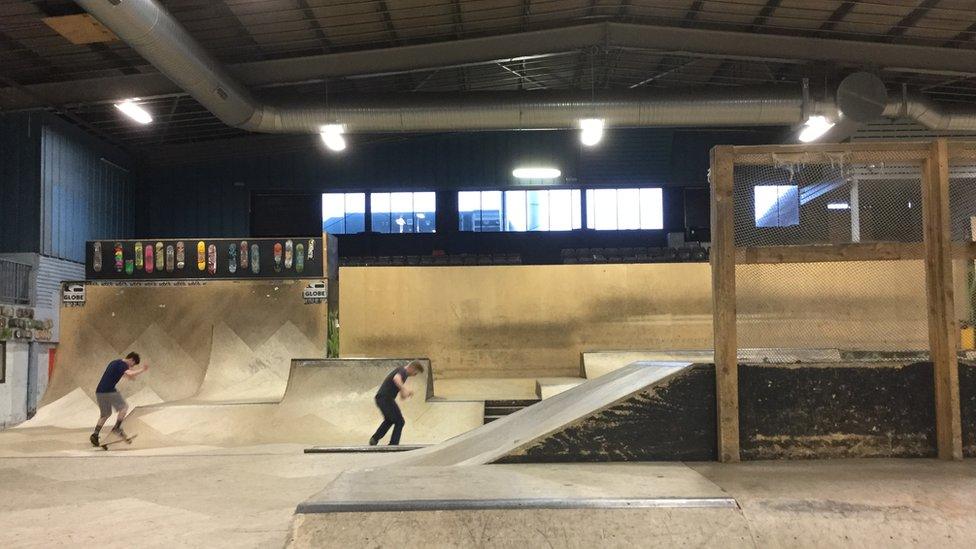
Deeside Leisure Centre will be taken over by an employee-led mutual
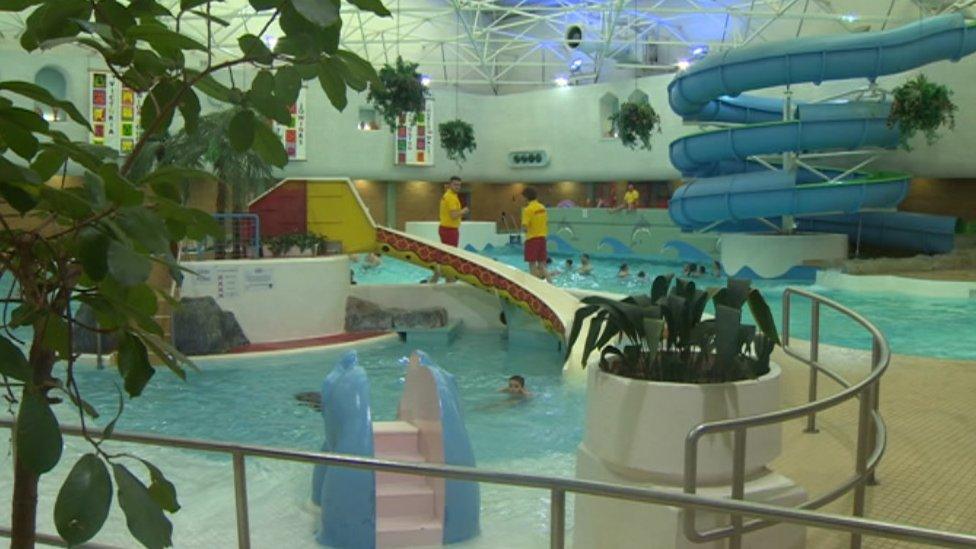
Plas Madoc was saved from closure by a £50,000 Wrexham council grant in December
The rest of Flintshire's leisure facilities will be handed over to a community benefit society this summer - the first of its kind in Wales and, according to managing director Mike Welch, the only employee-owned one in the UK.
"We've worked really hard to get the employees on board," he said. "Their dedication and hard work will help to achieve some savings because they have a vested interest in it succeeding."
"There will be no pay cuts, no changes to benefits like holidays and pensions - there is no downside for staff at all."
Increased productivity, a more commercial approach and - because it is a charitable organisation - 80% relief on business rates, will result in a £500,000 saving in the first year, Mr Welch added.
"The alternative would have been quite simple," said Cllr Kevin Jones, Flintshire's cabinet member for leisure. "We'd have had to choose which centre to close."
Meanwhile HAL's Heidi Williams has some advice for community groups thinking about taking on a leisure centre: "Don't underestimate how strong your board needs to be. You need accountants, people who have HR and marketing skills.
"But really you can't run a facility like this without proper revenue support."
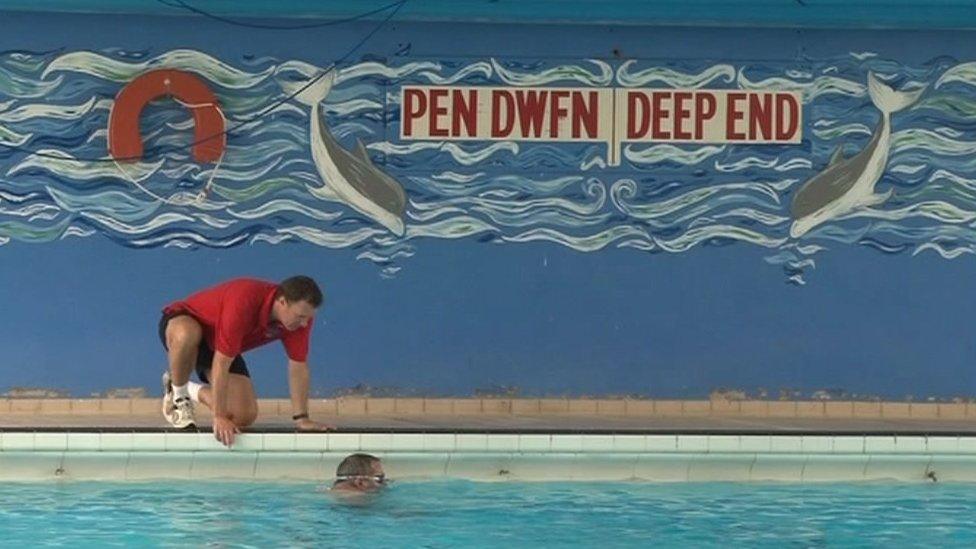
"It's been a struggle but we're still in operation", said HAL's Heidi Williams
Six community councils have now agreed to contribute £50,000 to the leisure centre in a move that will mean council tax bills in the area rising by up to £25 a year.
It was a last resort, said Ms Williams.
"The local authority doesn't have the money to contribute so it was either do this or close.
"The most important thing is that local children still have somewhere they can learn to swim.
"Communities have to look after themselves now."
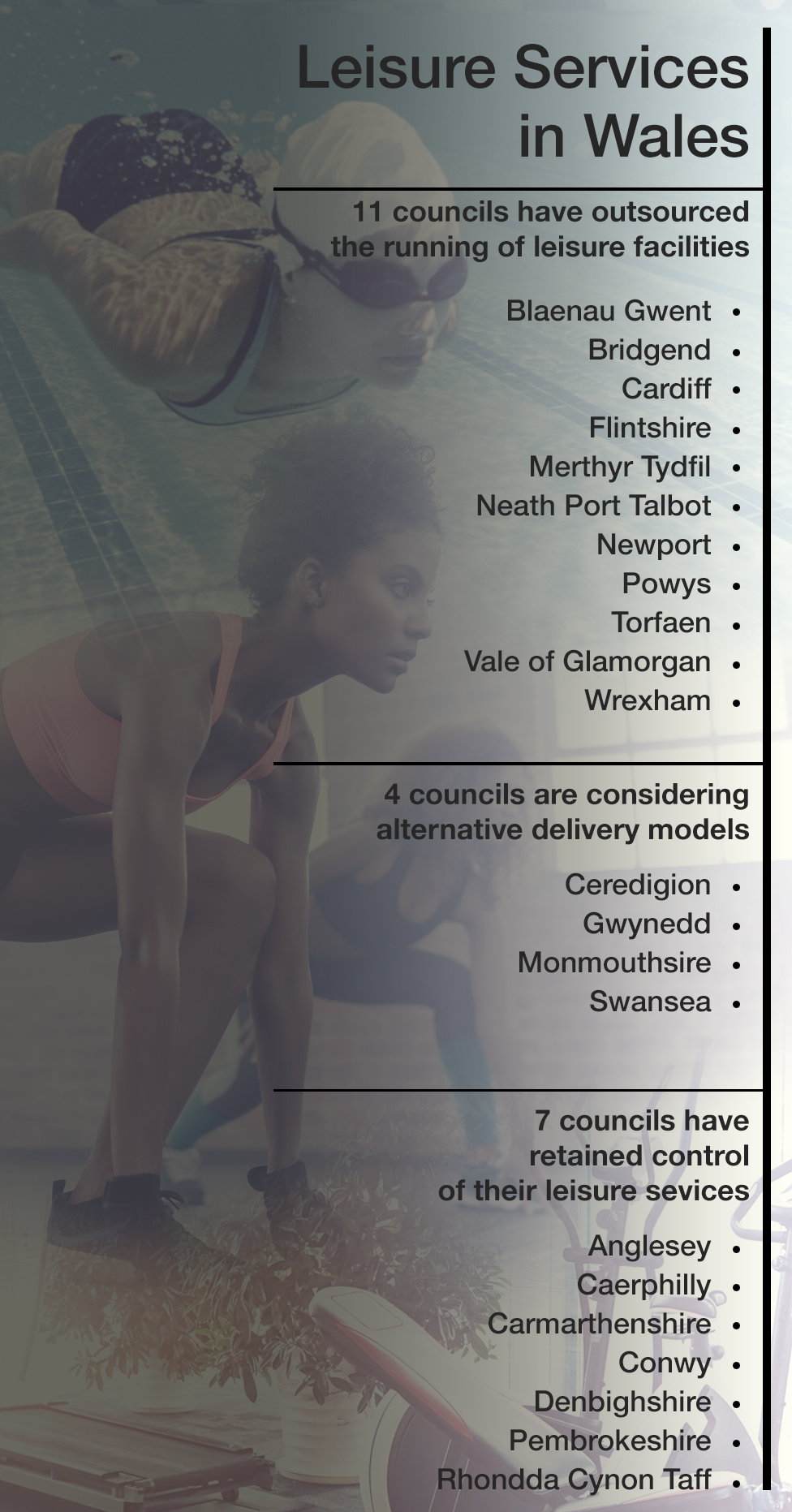
- Published31 January 2017
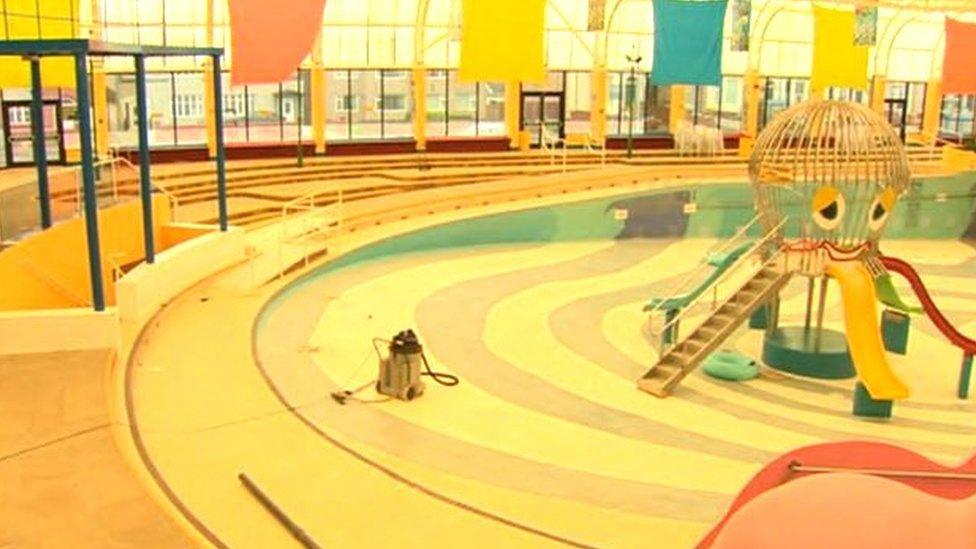
- Published26 January 2017

- Published13 December 2016

- Published13 December 2016

- Published27 August 2016
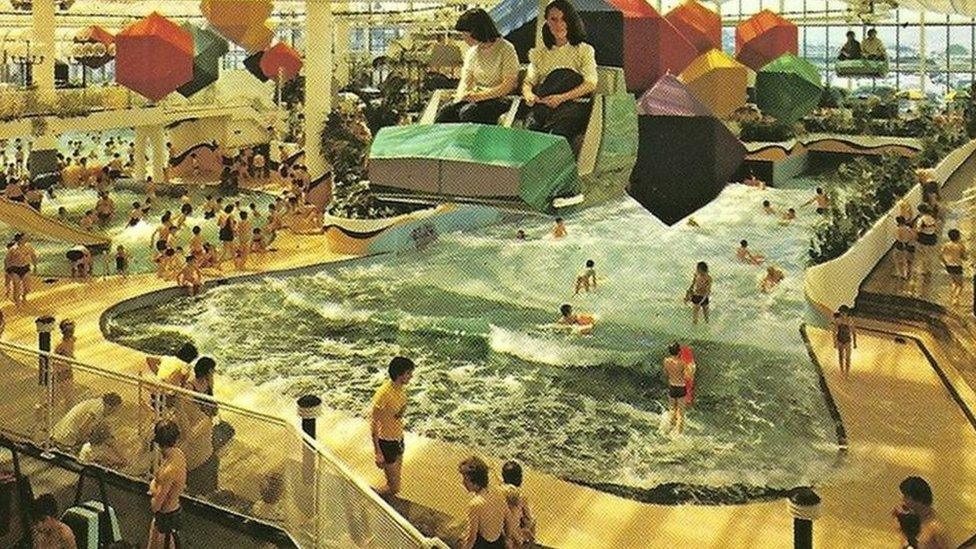
- Published17 May 2016
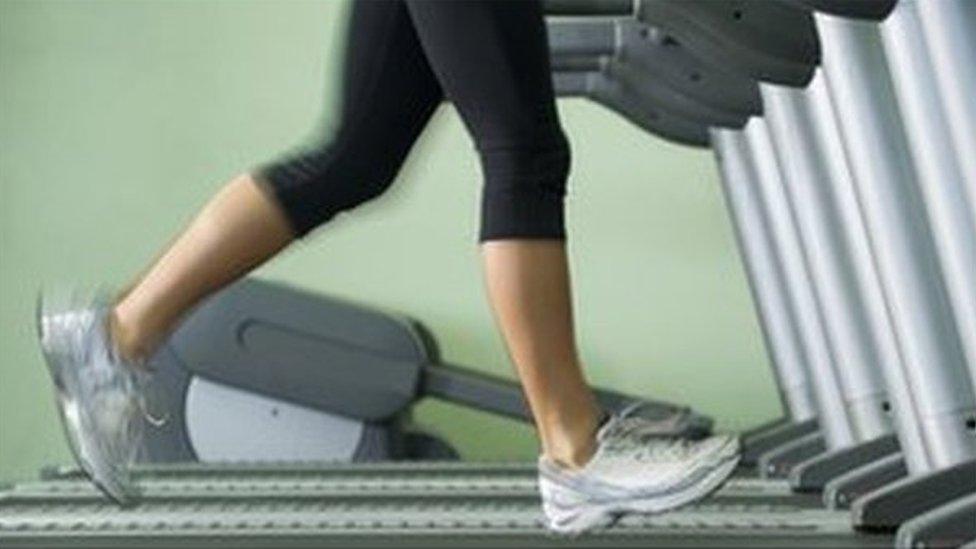
- Published5 June 2014
